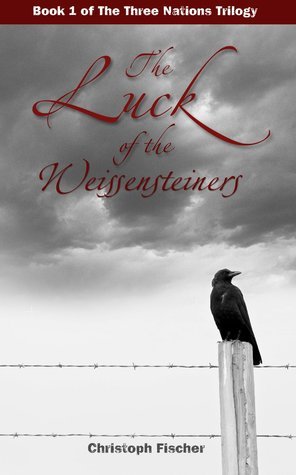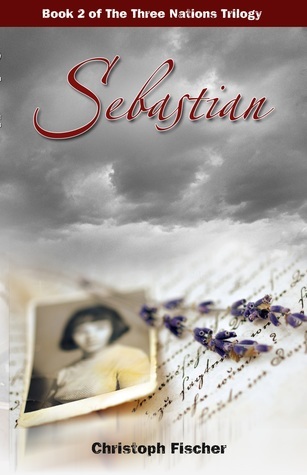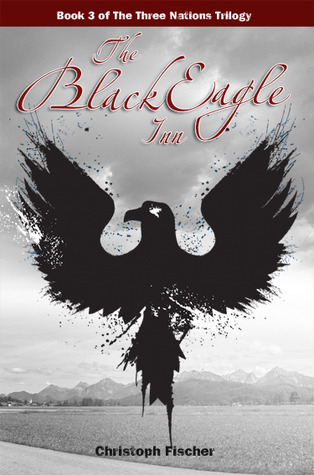


Books in series

#1
The Luck of the Weissensteiners
2012
In the sleepy town of Bratislava in 1933 a romantic girl falls for a bookseller from Berlin. Greta Weissensteiner, daughter of a Jewish weaver, slowly settles in with the Winkelmeier clan just as the developments in Germany start to make waves in Europe. The political climate in the multifaceted cultural jigsaw puzzle of disintegrating Czechoslovakia becomes more complex and affects relations between the couple and the families.
The story follows their lot through the war with its predictable and also its unexpected turns and events and the equally hard times after.
From the moment that Greta Weissensteiner enters the bookstore where Wilhelm Winkelmeier works, and entrances him with her good looks and serious ways, I was hooked. But this is no ordinary romance; in tact it is not a romance at all, but a powerful, often sad, Holocaust story. What makes The Luck of the Weissensteiners so extraordinary is the chance Christoph Fischer gives his readers to consider the many different people who were never in concentration camps, never in the military, yet who nonetheless had their own indelible Holocaust experiences. Set in the fascinating area of Bratislava, this is a wide-ranging, historically accurate exploration of the connections between social location, personal integrity and, as the title says, luck. I cared about every one of this novel's characters and continued to think about them long after I'd finished reading.
— Andrea Steiner, University of California Santa Cruz
The Luck of the Weissensteiners is an epic saga set in wartime Eastern Europe. It follows the lives of two families - one Jewish, one Catholic - and their entwined survival amidst the backdrop of the second world war; first the fascist then the communist invasion and occupation of Slovakia, and the horror of the consequences of war. The reader is transported to a world of deception, fear, distrust and betrayal, alongside enduring love and family drama. The characters are vividly painted in the mind of the reader as we follow their journey across Europe at a time of unimaginable challenge and trauma. Weissensteiners is a magnificent tale of human survival. I wish I hadn't read it already so that I may repeat the pleasure of discovering and becoming lost in the story once again.

#2
Sebastian
2013
Sebastian is the story of a young man who has his leg amputated before World War I. When his father is drafted to the war it falls on to him to run the family grocery store in Vienna, to grow into his responsibilities, bear loss and uncertainty and hopefully find love.
Sebastian Schreiber, his extended family, their friends and the store employees experience the ‘golden days’ of pre-war Vienna and the timed of the war and the end of the Monarchy while trying to make a living and to preserve what they hold dear.
Fischer convincingly describes life in Vienna during the war, how it affected the people in an otherwise safe and prosperous location, the beginning of the end for the Monarchy, the arrival of modern thoughts and trends, the Viennese class system and the end of an era.
As in the first part of the trilogy, “The Luck of The Weissensteiners” we are confronted again with themes of identity, Nationality and borders. The step back in time made from Book 1 and the change of location from Slovakia to Austria enables the reader to see the parallels and the differences deliberately out of the sequential order. This helps to see one not as the consequence of the other, but to experience them as the momentary reality as it must have felt for the people at the time.

#3
The Black Eagle Inn
2013
The Black Eagle Inn is an old established restaurant and part of a family farm business in the sleepy Bavarian countryside outside of Heimkirchen. Childless Anna Stockmann has fought hard to make it her own and keep it running through WWII. The family is divided by rivalry between family members since her own youth but at the heart of this story one of Anna’s nephews, Markus, owns her heart and another nephew, Lukas, owns her ear, while her husband Herbert is still missing-in-action.
Religion dictates life in Heimkirchen's enclosed Catholic community that was almost unaffected by the fighting in the war. Anna’s brother Hans-Ulrich is involved in the church as well as in post war party politics. He finds that the new generation, his own off spring, are not functioning as well as the older one would like. Bitter conflicts arise in the new forming Germany and the family members all need to decide how to respond to the challenges ahead.
How does a Nation recover from its collective shame, how does it rebuild itself into a modern state and deal with its horrendous past and the difficult path ahead? Restructuring of the political landscape & the influence of religion are strong themes in this historical family saga & post war drama set in Germany 1940 - 1976.
This is war fiction without immediate war, it is literary history about Germany after the Nazi rule with gay, racial, religious and feminist themes, describing the way one family experiences the forward move of a shamed Nation.
Fischer tells a great family saga with war in the far background and weaves the political and religious into the personal with belated or indirect impact of war on people.